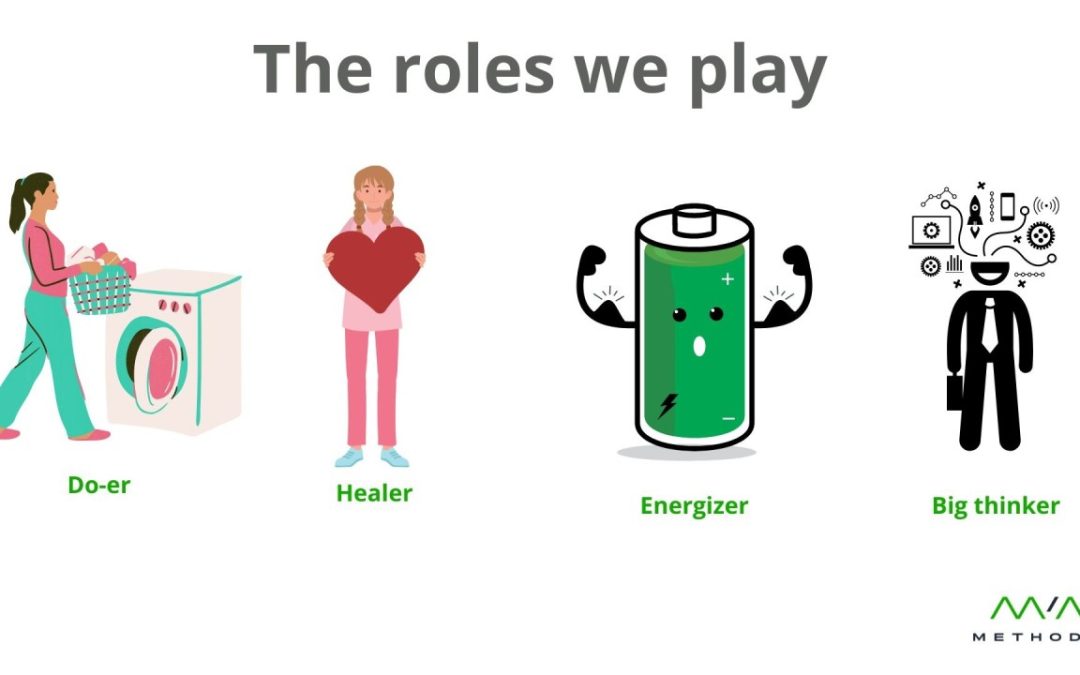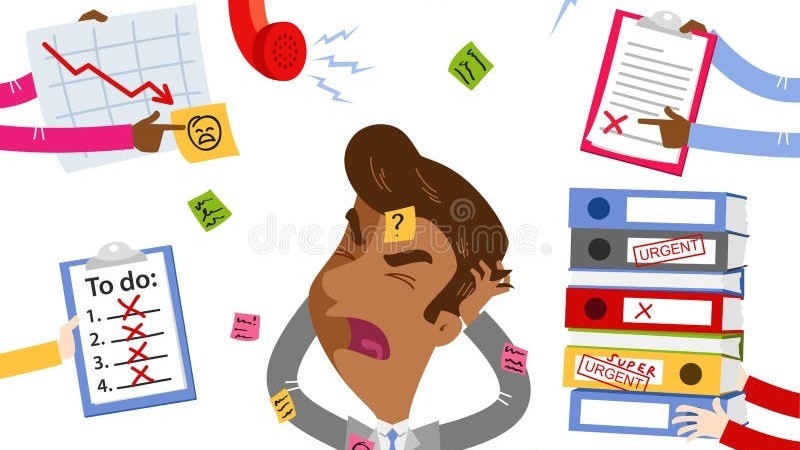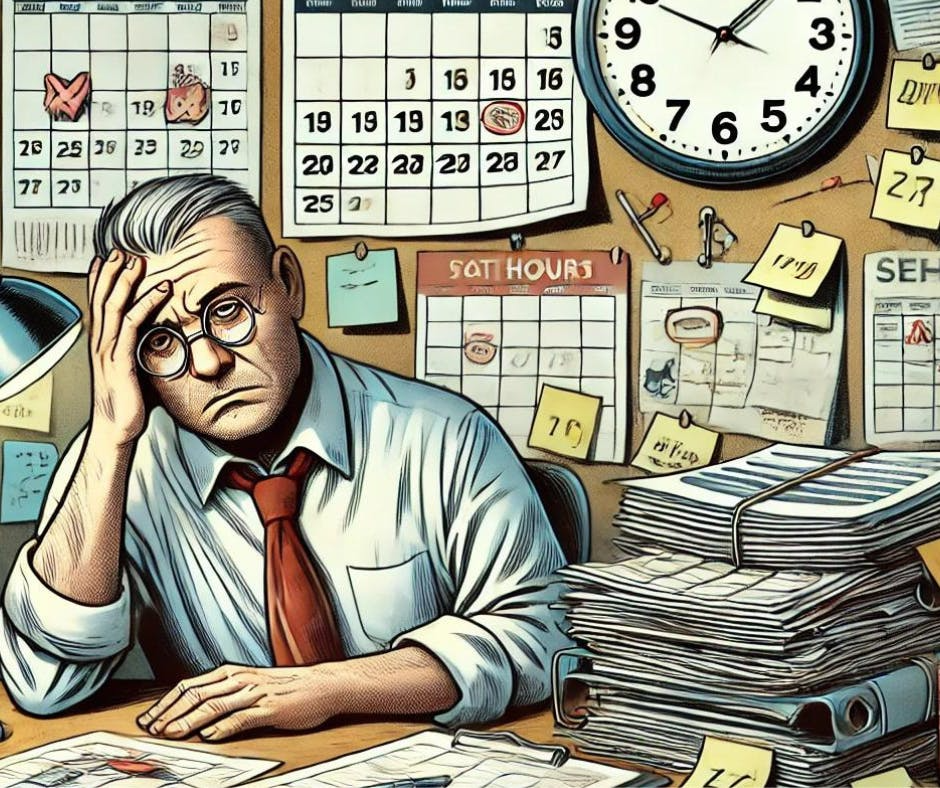In today’s fast-paced and ever-changing work environment, leaders are often juggling numerous responsibilities, from managing teams to setting strategic goals. One common yet often overlooked challenge is planning fatigue. This phenomenon can sneak up on even the most seasoned leaders, draining energy and diminishing effectiveness. In this issue, we’ll explore what planning fatigue is, its signs, and how to manage it.
Understanding Planning Fatigue
Planning fatigue occurs when a leader becomes overwhelmed by the constant need to organize, reschedule, and prioritize their daily tasks and meetings. This can lead to a sense of exhaustion, not just from the workload itself but from the mental effort required to keep everything in order. It’s a subtle yet impactful form of burnout that can affect decision-making, creativity, and overall job satisfaction.
Signs You Might Be Experiencing Planning Fatigue
Constant Rescheduling: You find yourself frequently moving meetings around, struggling to find time for all the tasks and commitments. It feels like a never-ending game of calendar Tetris.
Decision Paralysis: Simple decisions, such as prioritizing tasks, become increasingly difficult. You might find yourself second-guessing choices or unable to make decisions at all.
Increased Irritability: Small disruptions or changes in plans trigger frustration or annoyance. Your patience is shorter than usual, both with yourself and others.
Mental Exhaustion: You feel drained before the day even starts, often waking up already thinking about the logistics of the day ahead.
Decreased Productivity: Despite being busy all day, you feel like little is accomplished. The constant switching between tasks leaves you feeling unproductive.
Yes, planning fatigue can lead to burnout by causing mental and emotional exhaustion, decreased productivity, and loss of work-life balance. This constant strain can result in physical symptoms and reduced motivation.

Strategies to Combat Planning Fatigue
Prioritize Ruthlessly: Identify your top three priorities for the day and focus on those. Delegate or postpone less critical tasks to avoid spreading yourself too thin.
Set Clear Boundaries: Block out specific times in your calendar for focused work, and protect these slots from meetings and interruptions.
Streamline Your Schedule: Consider adopting a more structured approach to your week, such as theming days or setting specific times for recurring tasks. This can reduce the cognitive load of planning.
Automate and Delegate: Use technology to automate repetitive tasks and delegate responsibilities to your team members. Empowering others can lighten your load and help develop their skills.
Take Breaks: Schedule short breaks between meetings to reset and recharge. A quick walk or even a few minutes of deep breathing can make a significant difference.
Reflect and Adjust: Regularly review your schedule and workload. Reflect on what’s working and what’s not, and adjust your planning habits accordingly.
Planning fatigue is a real challenge that many leaders face. Recognizing the signs and implementing strategies to manage it can lead to a more balanced and productive work life. Remember, taking care of your mental well-being is not just beneficial for you but also for the team you lead.
Stay mindful, prioritize wisely, and keep leading with purpose!
d, might just be your inner saboteur whispering sweet nothings to keep you safe, silent, and liked.
This month, I took a sabotage test with my coach (yes, there’s such a thing), and my number one behavior? The need to be liked. Ugh. Apparently, I justify everything I do to myself by saying, “This way people will like me more.” (Honestly, ew.)
And while I could spend a whole newsletter unpacking that, this one’s more about you. Because I’m pretty sure I’m not alone.
Here are five classic saboteur behaviors that sneak into our decisions, actions, and ambitions:
1. The People-Pleaser – Wants to be liked so badly they forget their own opinion halfway through a meeting.
2. The Controller – Believes if they don’t do it, the world will implode in 30 minutes.
3. The Avoider – Hates conflict. Dodges tough conversations like they’re dodgeballs.
4. The Hyper-Rational – Feels more at home in a spreadsheet than in a team meeting.
5. The Stickler – Obsessed with rules, order, and making slides look “perfect.” (You know who you are.)
These saboteurs aren’t just quirky personality traits. They block creativity, delay bold decisions, and keep teams stuck in safe, small thinking. And if you’re in the middle of a big change, a reorganization, or trying to lead something brave? They get LOUD.
So, what am I doing about mine (the “please like me” one)? I’m practicing boundaries. Saying, “No, I can’t do that this week,” even when I really want the gold star. And noticing how uncomfortable I feel afterwards (spoiler: very).
Wanna find your saboteur? Take the same test I did—it’s eye-opening, annoying, and slightly addictive.
Here’s the link to the Saboteur Assessment – https://www.positiveintelligence.com/saboteurs/
And write back to me—what’s your #1 saboteur? What’s it stopping you from doing?
Let’s all try dropping one tote bag this month.
All the best
Saby
More From This Category

Embracing Our Strengths (Even When We Doubt Them)- November edition
Embracing Our Strengths (Even When We Doubt Them)- November editionEver felt like your greatest strength might just be… your biggest weakness? I do, all the time! One of my strengths (and possibly my superpower) is making people laugh at any given moment....

I just want to be liked”—and other sabotaging behaviors we carry like emotional tote bags
"I just want to be liked”—and other sabotaging behaviors we carry like emotional tote bagsYou know that little voice in your head? The one that says: •“Don’t ask that tough question, you’ll make them uncomfortable.” •“Don’t pitch that wild idea, you’ll sound...

This Month’s Behavior to Let Go: Enmity with Stress
This Month’s Behavior to Let Go: Enmity with StressLet’s be honest: “I’m stressed” is practically a default status update these days. But here’s a thought, what if stress isn’t the enemy? I’ve been thinking a lot about the role of stress in our lives and came across...

Embracing Our Strengths (Even When We Doubt Them)- November edition
Embracing Our Strengths (Even When We Doubt Them)- November editionEver felt like your greatest strength might just be… your biggest weakness? I do, all the time! One of my strengths (and possibly my superpower) is making people laugh at any given moment....


0 Comments